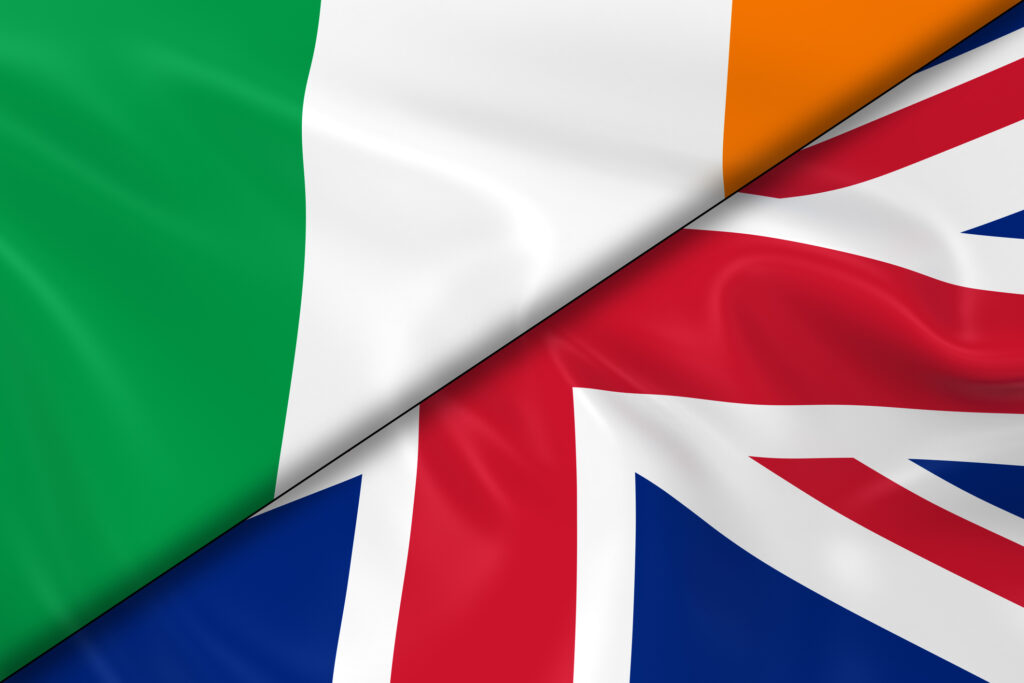The rash of public disorder in Loyalist areas of Northern Ireland bears all the hallmarks of behind the scenes orchestration by paramilitary groups which were understood to be dormant. It is hard to understand the motivation for such organised disorder.
At one level, young rioters hi-jacking vehicles and petrol bombing PSNI patrols may have nothing better to do than engage in some early season recreational rioting. Inconveniences rising from the Northern Ireland protocol hardly affect the rioters’ day to day existence.
However, the DUP has, as a party, entered into dialogue with the Ulster Loyalist Community Council (the ULCC) over a number of weeks in relation to the protocol.
Clearly the DUP believes that loyalist displeasure at the protocol can be harnessed as part of the doomed campaign which they are waging on a number of levels to have the UK renege on the protocol – a solemn treaty obligation with the EU.
The UK’s unilateral postponement of parts of the protocol could be seen as shape-throwing designed to assuage unionist unhappiness at their betrayal in relation to the so-called Irish Sea border.
Cynics would juxtapose the assurances given by Boris Johnston to the DUP conference with the sell-out of the DUP position embodied in the protocol. As Alex Kane pointed out here recently, such betrayals are to be expected at the hands of the Tories.
In the fetid zero-sum game of politics practised by some in the North, the subtext may well be that DUP/loyalist dissatisfaction will only be noticed if the international media carry footage of rioting and petrol bombing – a bizarre version of a “cry for help”.
Now the decision made by the North’s prosecutor not to charge those responsible for the grotesque Bobby Storey funeral parade with breaches of the Covid regulations is claimed to add fuel to the fire.
If indeed that grotesque parade was the result of negotiation between Sinn Féin and the PSNI, there are questions to be asked.
Exactly what basis could there possibly have been for according almost complete exemption from the funeral restrictions to the parade? Why would Bobby Storey’s obsequies be deserving of special treatment when so many families must bury their loved ones in forlorn isolation from their communities?
It isn’t necessary to dwell on the record of the late Bobby Storey in organising crimes ranging from murder to extortion to grand robberies and casual torture knee-cappings over a long period of time.
Even if all that were disregarded, there was no case whatsoever for the grotesque funeral parade or for the uniformed escort of old provos wearing a natty new uniform – this season’s change in team kit from polo-necks, berets and sunglasses.
Nor is it necessary to ask why the funeral, which was to end in a crematorium, paid a weird detour to the republican plot in a cemetery without interment.
The episode was disgraceful in its entirety. It ran directly contrary to any appetite for community reconciliation in the North. The boys in the Felons’ Club who planned it, the leaders of Sinn Féin, north and south, who agreed to participate, and the misguided police who apparently approved of it, should all hang their heads in shame.
Every word spoken anywhere by Sinn Féin on Covid and lockdowns rings very hollow.
Of course, the grotesque parade was intended to be provocative and offensive. Moreover, it was intended to celebrate power – over the law and the community. In Provo ideology, there is a special place for funerals and graveside demonstrations. Sinn Féin is still wedded to funerary politics – a strange form of necrophilia.
After our Civil War, there was general shared understanding that reconciliation and peaceful coexistence between the rival factions was more important than sporadic ritual commemoration of perpetrators and victims. Did the organisers of the grotesque Storey funeral parade ever ask themselves whether the occasion would add to or detract from the process of reconciliation and cross-community healing in the North? Of course not.
These recriminations all play into the hands of both sides’ petty sectarian warlords and their parliamentary allies.
One might think that the North, as a society with its own economic and social problems, could expect something better of its elected leaders. Targeting the Chief Constable and the Protocol or parading the remains of Storey are as futile a political agenda as can be imagined.
Instead of seeing the advantages of being simultaneously part of the EU and UK economies, the very minor (and easily remedied) inconveniences in respect of cross-channel trade have been blown up into an existential threat to unionism itself.
The DUP and Sinn Féin should ask themselves whether communal disorder and tension helps or hinders progress and prosperity in these challenging times?
A shameful story – however you spell that.

